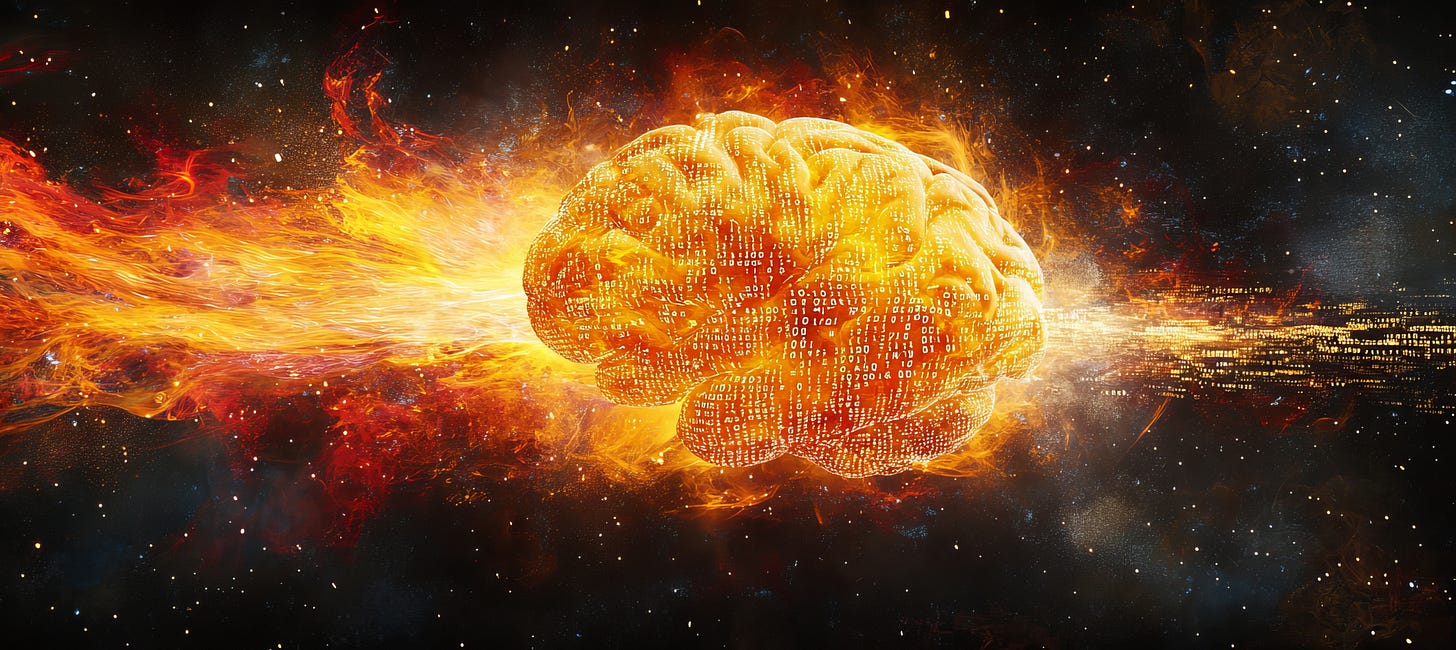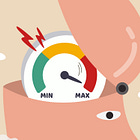Daily Brain Snack: How Much Energy Does Thinking Use?
New research gives us an accurate prediction of how much more energy directed cognitive functions use - and it's not much!
Doesn’t the brain use more energy than anything else in the body?
Relative to its weight it does. The brain accounts for about 2% of an average person’s weight but accounts for about 20% of our energy usage. That’s a significant different and shows how important the brain is for us human beings.
But the question that Sharna Jamadar and colleagues in Australia aimed to find out, was how much more energy does the brain use when engaged in cognitive tasks (and its general energy usage and fluctuations).
Well, when I engage with complex tasks for a long period of time I feel tired. In fact after tough day it can feel as if I’ve run a marathon!
Yes, that is also because we don’t actually often engage in deep cognitive tasks for long periods of time and we know this is limited after even a few minutes of serious engagement, attention and cognition can slow down. The limit tends to be about 45 minutes. Research I reported on before shows how the brain combats and tries to compensate for fatigue with different mechanisms kicking in after 60 minutes but the limit tends to be about 100 minutes.
So how much energy is being used when my neurons are firing way like crazy?
Not as much as you think!
You feel fatigued because of multiple processes and a dip in functioning of neurons but the energy difference, Jamadar et al. found, was only a 5% uptick.
What, only 5% - it sometimes feels like my brain is on overdrive!
Yes, sure, but biological systems do not operate like mechanical or electrical systems. Our brain is always constantly active. When you sit and do nothing your brain is still humming along. I have spoken often about our default brain network - often when we daydream or different thoughts pop into and out of our consciousness.
When we engage in cognitive activity, active thinking, we are just shifting the way the brain engages. Yes, there is an uptick in activity and energy but it is small - the fatigue comes through different mechanisms, and are just some of your neurons saying they have been overused.
So, our brain uses similar amounts of energy at all times?
Yes, precisely, and the researchers note that this appears to be important with energy utilisation of the brain limited to a delicate and dynamic balance. Disruption of this balance is also indicative of cognitive decline or disease.
Of note is that even our bodies energy usage is more similar than you may assume - I recently read the book Burn by Herman Pontzer and his research that shows that sedentary populations use similar amounts of energy to active population groups (sounds mad, but that is indeed the way it is).
So thinking does makes us tired but it won’t burn many calories
Precisely. Look at other ways to lose weight. But thinking is also good for you - so keep it up!
Reference
Jamadar, S. D., Behler, A., Deery, H., and Breakspear, M.
The metabolic costs of cognition.
Trends Cogn. Sci. 2025
doi:10.1016/j.tics.2024.11.010.





